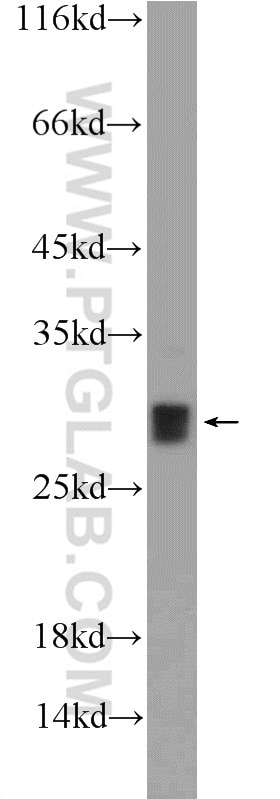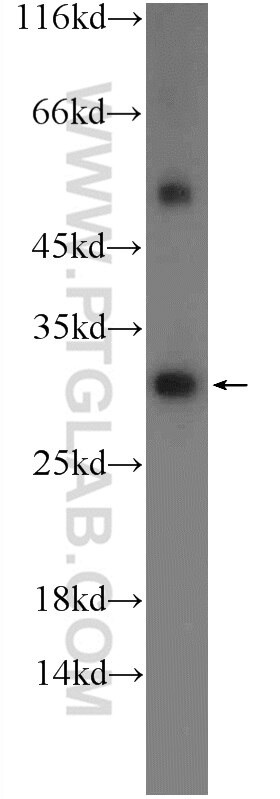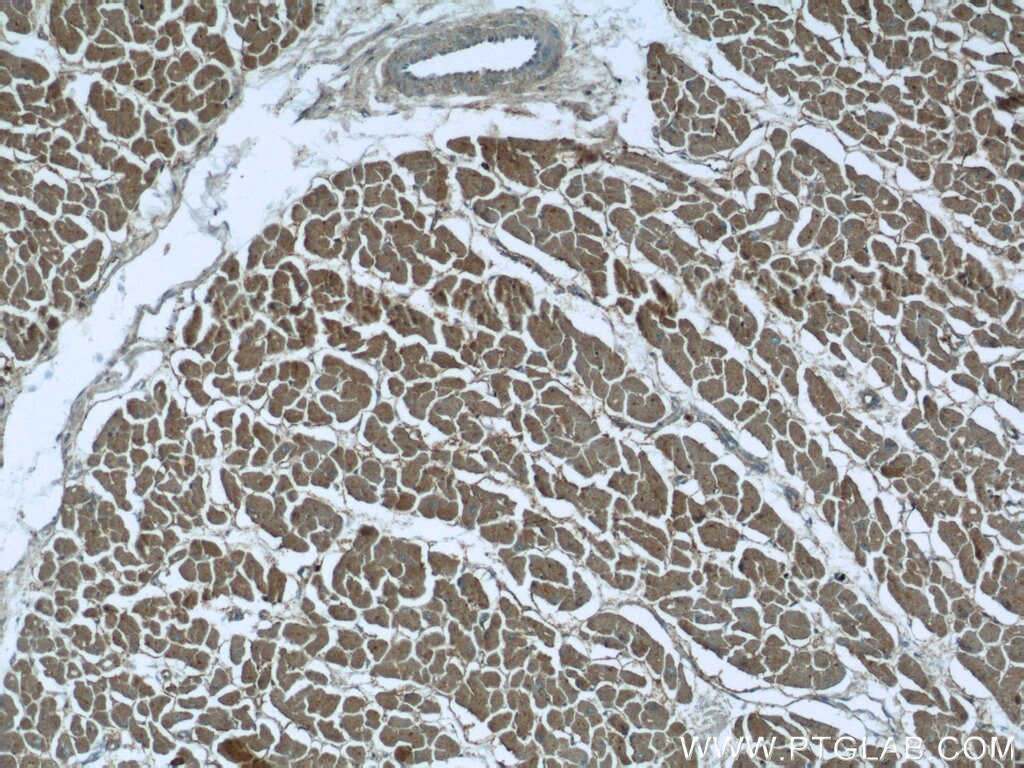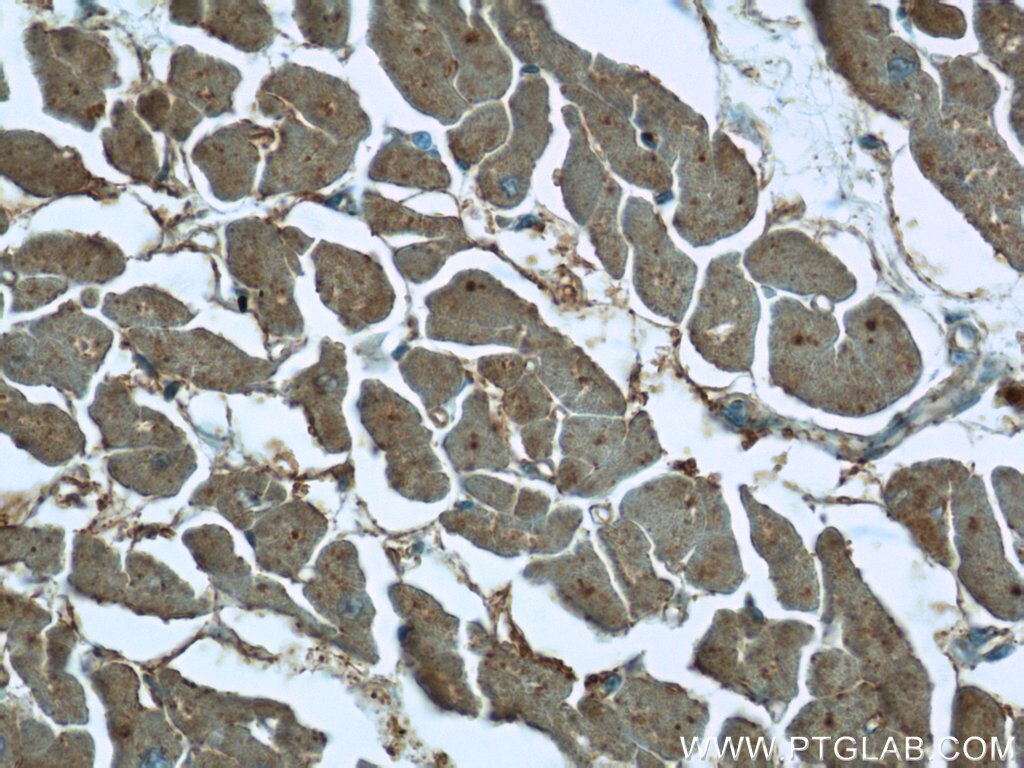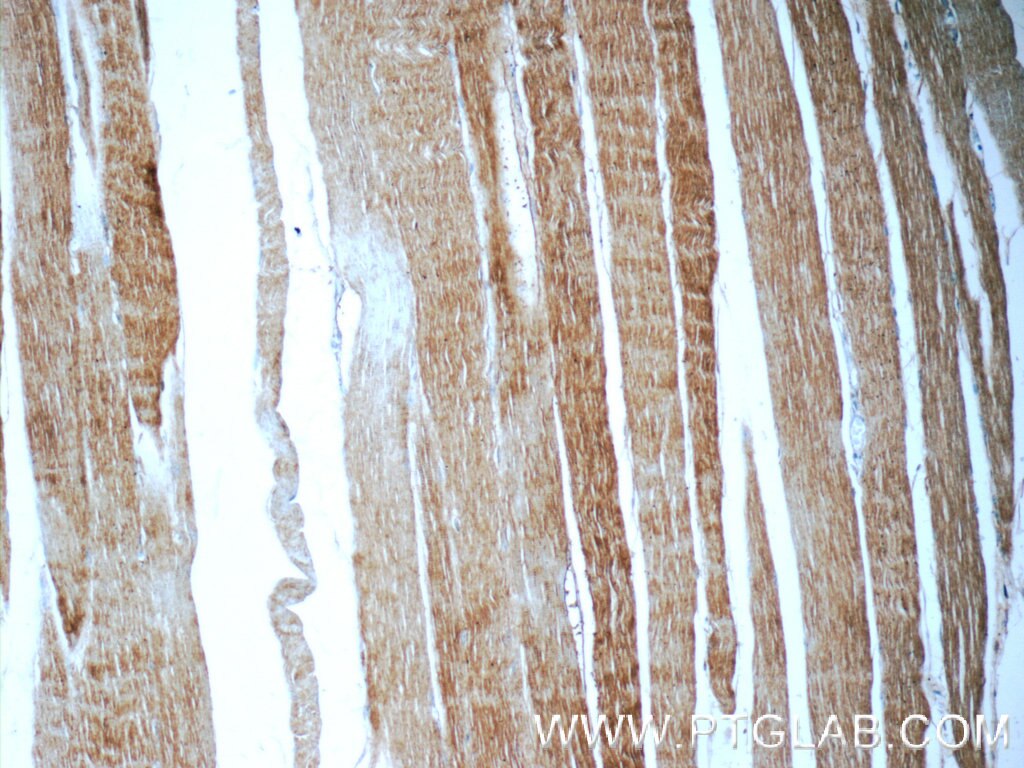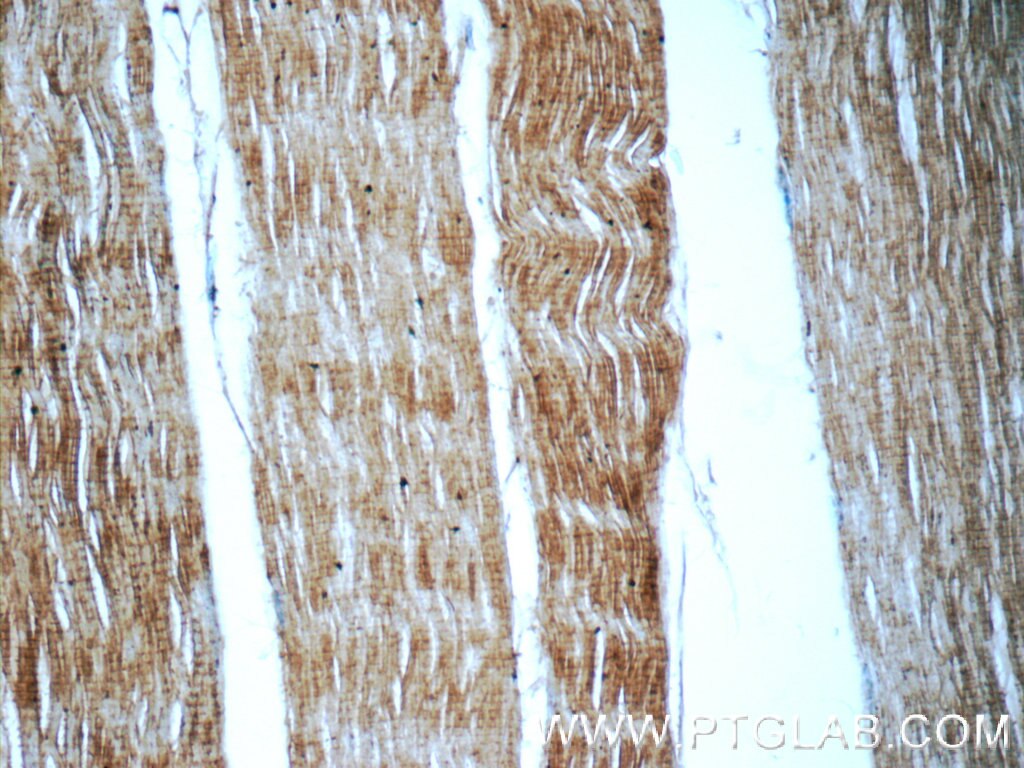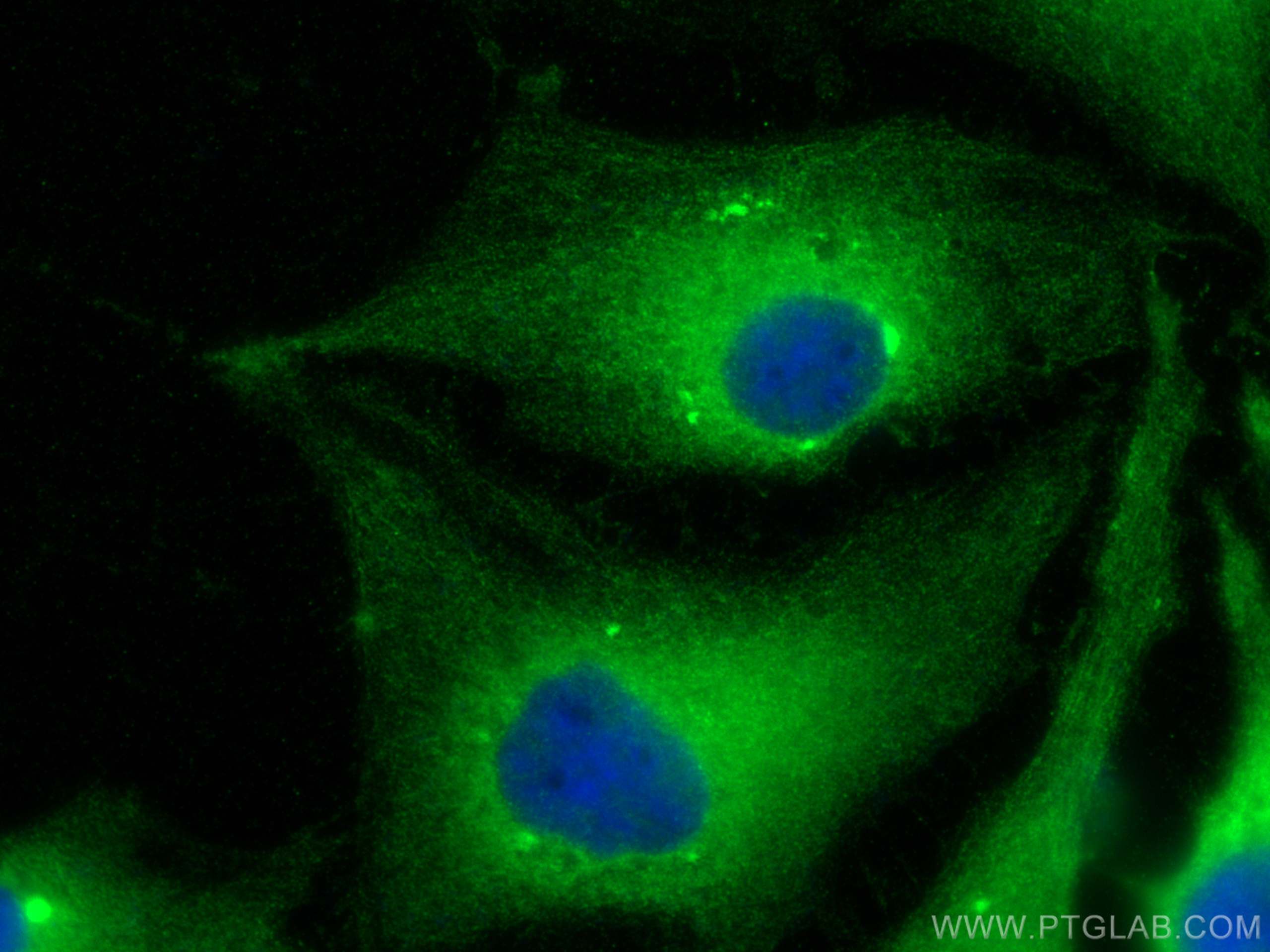Validation Data Gallery
Tested Applications
| Positive WB detected in | mouse heart tissue, mouse skeletal muscle tissue |
| Positive IHC detected in | human heart tissue, human skeletal muscle tissue Note: suggested antigen retrieval with TE buffer pH 9.0; (*) Alternatively, antigen retrieval may be performed with citrate buffer pH 6.0 |
| Positive IF/ICC detected in | HeLa cells |
Recommended dilution
| Application | Dilution |
|---|---|
| Western Blot (WB) | WB : 1:500-1:2000 |
| Immunohistochemistry (IHC) | IHC : 1:20-1:200 |
| Immunofluorescence (IF)/ICC | IF/ICC : 1:200-1:800 |
| It is recommended that this reagent should be titrated in each testing system to obtain optimal results. | |
| Sample-dependent, Check data in validation data gallery. | |
Published Applications
| KD/KO | See 1 publications below |
| WB | See 1 publications below |
| IF | See 1 publications below |
Product Information
21161-1-AP targets SH3BGR in WB, IHC, IF/ICC, ELISA applications and shows reactivity with human, mouse samples.
| Tested Reactivity | human, mouse |
| Cited Reactivity | human |
| Host / Isotype | Rabbit / IgG |
| Class | Polyclonal |
| Type | Antibody |
| Immunogen |
CatNo: Ag14739 Product name: Recombinant human SH3BGR protein Source: e coli.-derived, PGEX-4T Tag: GST Domain: 1-239 aa of BC006371 Sequence: MPLLLLGETEPLKLERDCRSPVEPWAAASPDLALACLCHCQDLSSGAFPNRGVLGGVLFPTVEMVIKVFVATSSGSIAIRKKQQEVVGFLEANKIDFKELDIAGDEDNRRWMRENVPGEKKPQNGIPLPPQIFNEEQYCGDFDSFFSAKEENIIYSFLGLAPPPDSKGSEKAEEGGETEAQKEGSEDVGNLPEAQEKNEEEGETATEETEEIAMEGAEGEAEEEEETAEGEEPGEDEDS 相同性解析による交差性が予測される生物種 |
| Full Name | SH3 domain binding glutamic acid-rich protein |
| Calculated molecular weight | 239 aa, 26 kDa |
| Observed molecular weight | 26-30 kDa |
| GenBank accession number | BC006371 |
| Gene Symbol | SH3BGR |
| Gene ID (NCBI) | 6450 |
| RRID | AB_2878820 |
| Conjugate | Unconjugated |
| Form | |
| Form | Liquid |
| Purification Method | Antigen affinity purification |
| UNIPROT ID | P55822 |
| Storage Buffer | PBS with 0.02% sodium azide and 50% glycerol{{ptg:BufferTemp}}7.3 |
| Storage Conditions | Store at -20°C. Stable for one year after shipment. Aliquoting is unnecessary for -20oC storage. |
Protocols
| Product Specific Protocols | |
|---|---|
| IF protocol for SH3BGR antibody 21161-1-AP | Download protocol |
| IHC protocol for SH3BGR antibody 21161-1-AP | Download protocol |
| WB protocol for SH3BGR antibody 21161-1-AP | Download protocol |
| Standard Protocols | |
|---|---|
| Click here to view our Standard Protocols |

